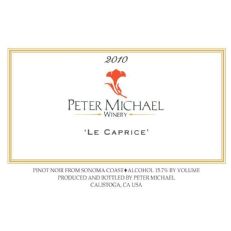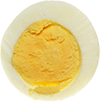Sign In Chef

By using our free meal planner (and the rest of spoonacular.com) you have to agree that you and only you are responsible for anything that happens to you because of something you have read on this site or have bought/cooked/eaten because of this site. After all, the only person who controls what you put in your mouth is you, right?
Spoonacular is a recipe search engine that sources recipes from across the web. We do our best to find recipes suitable for many diets — whether vegetarian, vegan, gluten free, dairy free, etc. — but we cannot guarantee that a recipe's ingredients are safe for your diet. Always read ingredient lists from the original source (follow the link from the "Instructions" field) in case an ingredient has been incorrectly extracted from the original source or has been labeled incorrectly in any way. Moreover, it is important that you always read the labels on every product you buy to see if the product could cause an allergic reaction or if it conflicts with your personal or religious beliefs. If you are still not sure after reading the label, contact the manufacturer.
We also attempt to estimate the cost and calculate the nutritional information for the recipes found on our site. Again, we cannot guarantee the accuracy of this information. Additionally, our nutrition visualizer that suggests that you limit sodium, sugar, etc., and get enough protein, vitamins, and minerals is not intended as medical advice. Similarly, our health tips are based on articles we have read from various sources across the web, and are not based on any medical training. The team behind spoonacular does not possess any medical qualifications and the information may be found to be incorrect or out of date based on future research. If you need help planning your diet or determining which foods (and recipes) are safe for you, contact a registered dietitian, allergist, or another medical professional.
Spoonacular is not responsible for any adverse effects or damages that occur because of your use of the website or any information it provides (e.g. after cooking/consuming a recipe on spoonacular.com or on any of the sites we link to, after reading information from articles or shared via social media, etc.)
×$1.66 per serving

1 likes

Ready in 45 minutes

Spoonacular Score: 56%
You can never have too many Mexican recipes, so give Mexican Potato Salad a try. This side dish has 255 calories, 9g of protein, and 14g of fat per serving. This recipe serves 6. For $1.66 per serving, this recipe covers 14% of your daily requirements of vitamins and minerals. Not a lot of people made this recipe, and 1 would say it hit the spot. From preparation to the plate, this recipe takes roughly 45 minutes. It is perfect for The Fourth Of July. A mixture of corn, cherry tomatoes, chili powder, and a handful of other ingredients are all it takes to make this recipe so yummy. It is brought to you by Foodista. It is a good option if you're following a gluten free and lacto ovo vegetarian diet. With a spoonacular score of 41%, this dish is good. Users who liked this recipe also liked Mexican Potato Salad, Mexican Potato Salad, and Mexican Potato Salad.
Pinot Noir, Riesling, and Sparkling rosé are my top picks for Mexican. Acidic white wines like riesling or low-tannin reds like pinot noir can work well with Mexican dishes. Sparkling rosé is a safe pairing too. The Peter Michael Le Caprice Pinot Noir with a 4.9 out of 5 star rating seems like a good match. It costs about 259 dollars per bottle.
 Deep red ruby color and bright crimson tinge is the clear identifierfor Le Caprice. The vineyard shows its signature characteristics ofred forest fruit coupled with aromas of red cherry liqueur, currant,raspberry, strawberry, fresh leather and graphite. The 2010 vintageis refined and expressive with intense concentration in the mouth.The finish lingers both aromatically and subtly on the palate.
Deep red ruby color and bright crimson tinge is the clear identifierfor Le Caprice. The vineyard shows its signature characteristics ofred forest fruit coupled with aromas of red cherry liqueur, currant,raspberry, strawberry, fresh leather and graphite. The 2010 vintageis refined and expressive with intense concentration in the mouth.The finish lingers both aromatically and subtly on the palate.
» Get this wine on Wine.com








































Read the detailed instructions on Foodista.com – The Cooking Encyclopedia Everyone Can Edit